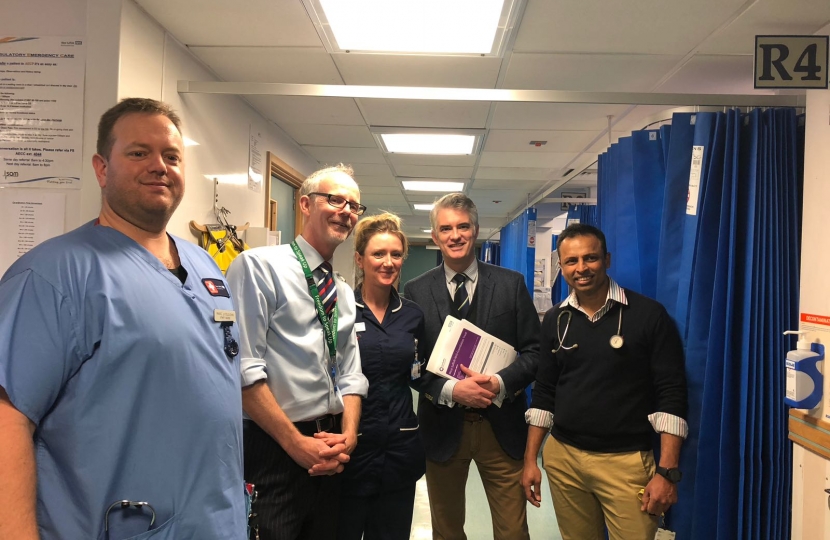
Next week we will celebrate the 70th Anniversary of our National Health Service. Wherever you stand on the detail of how we take forward our NHS with all the pressures it faces, few would surely argue with the recognition and plaudits bestowed on our great national institution in recent weeks. The fact is that you if you fall seriously ill tomorrow, at no cost to you or your family you will receive a standard of care that is generally very good.
Every week constituents contact me with a message along the lines of “whatever they say about the NHS, my care was excellent”. Of course there are also constituents who complain about their treatment, sometimes seriously, but such instances are rare. We should all be proud of that fact, and as the son of a nurse who worked for decades in the health service, we should be particularly proud of the staff who deliver that care.
But of course, any sentimental attachment to the inherent qualities of our NHS can only go so far. The service is free to those who use it, but far from free to our nation’s coffers. Every aspect of NHS care has to be paid for, and ultimately paid for by our taxes.
Thus, I was delighted when the Health Secretary Jeremy Hunt announced a new long-term funding settlement for the NHS that will see spending rise 3.4% per year over the next five years. This will culminate in a real-terms increase of £20bn per year – or more than £350m per week.
Yes, the figures grab the headlines, but as Jeremy Hunt’s Parliamentary Private Secretary I can confirm that a huge amount of hard work and negotiation went into that deal behind the scenes. In particular, every effort was made to involve the leadership of NHS England at all times, and they now have a settlement which they utilise to deliver a ten year plan for improving outcomes for the people who really matter – patients.
Naturally, a spending award of this scale attracts two key questions. Where will the money come from? And how will taxpayers get value for money, avoiding funds going down a black hole?
On the first question, it is not at all unusual for a Government to set out spending plans for a department in one statement and then set out the revenue raising side in a subsequent Budget; in fact, that method is commonplace. What we do know is that when we leave the EU we will stop paying our multi-billion pound subscription fees; that is for certain – and yes there may be a wider economic impact from leaving, but that is purely hypothetical. In addition, the Prime Minister has stated that taxpayers will have to pay a bit more in to the system.
Given the NHS is funded by taxes, I would not have thought this so controversial a proposition unless people think health spending should not rise. The problem is that our NHS faces unprecedented demographic pressures from an aging population, coupled with the rising cost of treatments. It would take a Government with a larger majority than ours to be confident of raising such a large amount of funding from cuts to other department’s budgets, without needing any tax rises at all. So given that borrowing is just taxation applied (with cowardice) to the next generation, we may have to have some realism about this.
And actually, this is the key point. In reality, the dividend that matters here is not the ‘Brexit dividend’ but the ‘deficit dividend’. Fundamentally, the reason we are even able to have this plan at all is because we worked so hard – often controversially – to slash the record post-war deficit which we inherited in 2010. I try to avoid party politics in this column but for Labour to say they will ‘match’ our position is a contradiction: they wouldn’t be in this position because they would not have taken the measures required to restore our public finances in the first place.
To the second question, value for money, the NHS will now bring forward a ten year plan to transform care, including plans for improving key outcomes for patients, such as cancer survival rates. Ignoring the politics, the hype and the Brexit dividend slanging match, this is what our announcement boils down to: there are people alive today who will one day contract cancer, and as a result of our plan, be more likely to survive that trauma and live a fulfilling life.
Article by James Cartlidge MP. Published by the East Anglian Daily Times.
